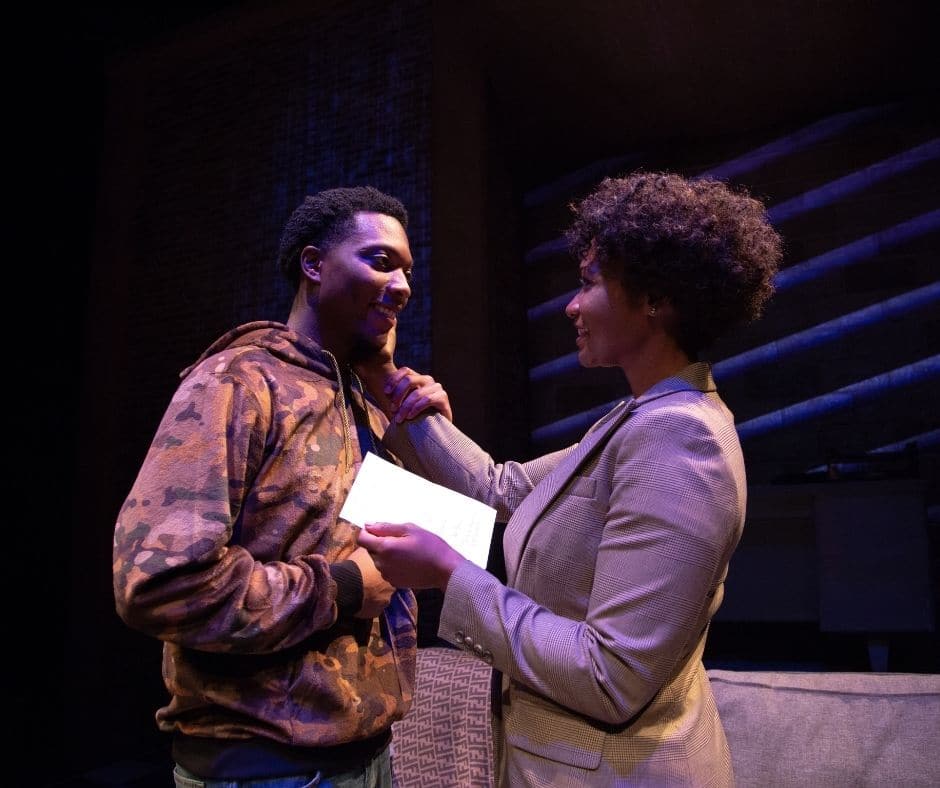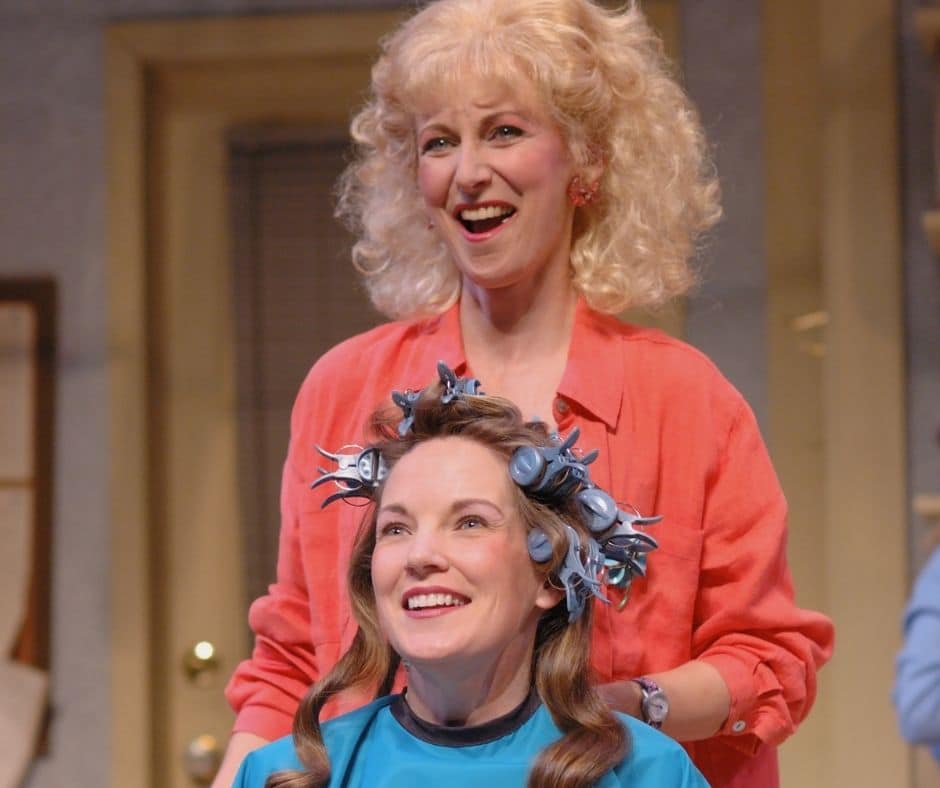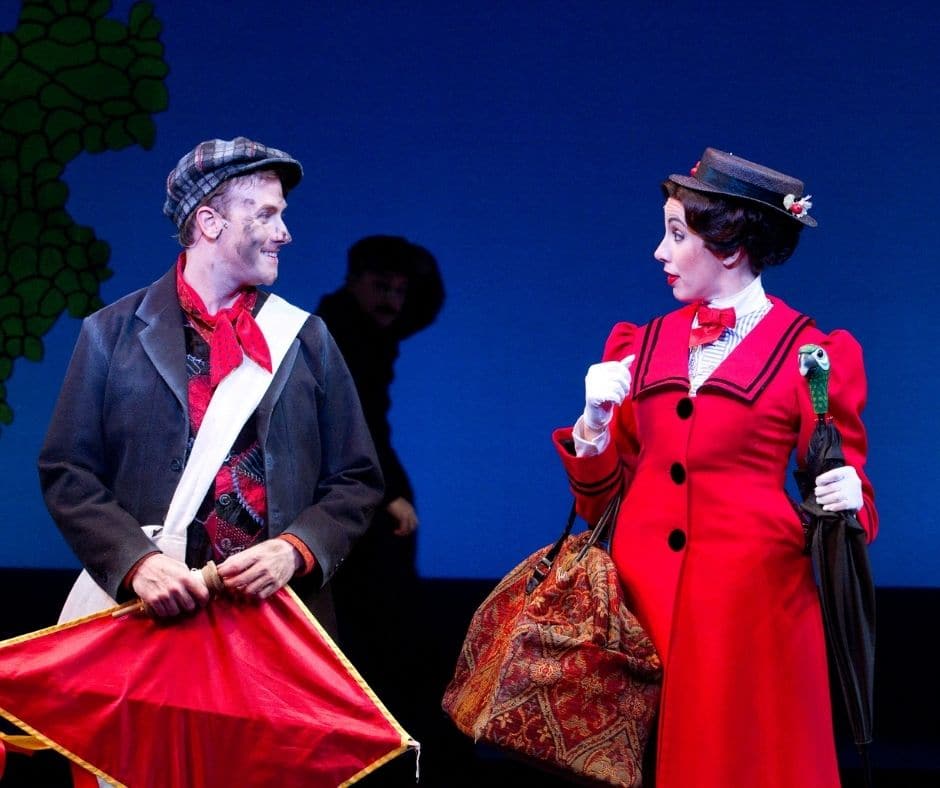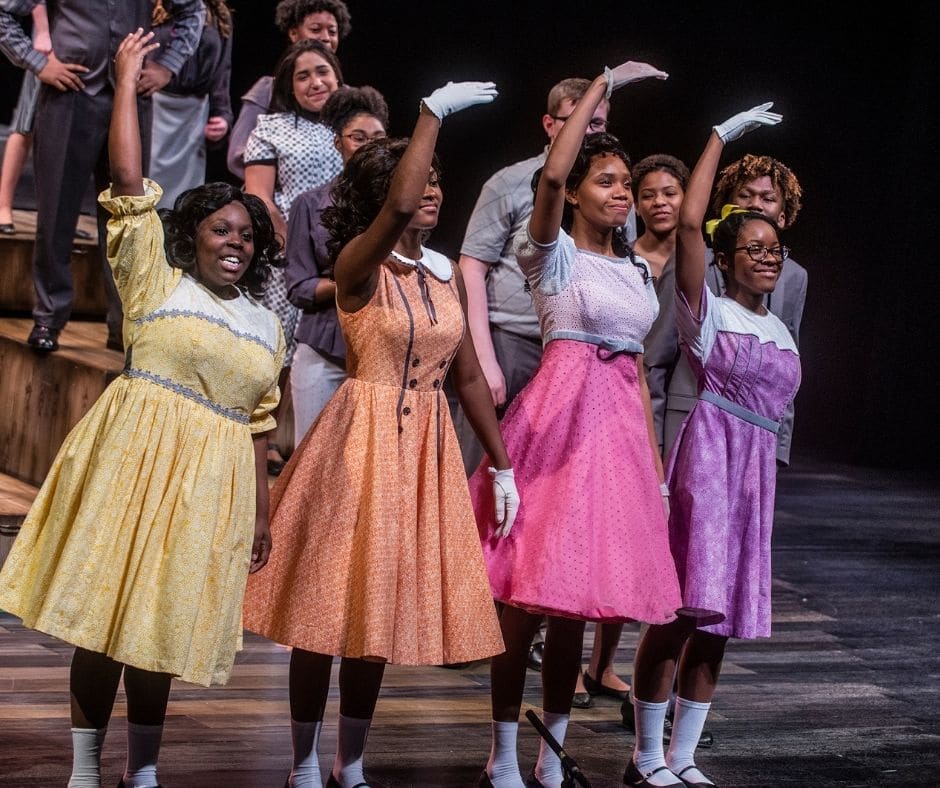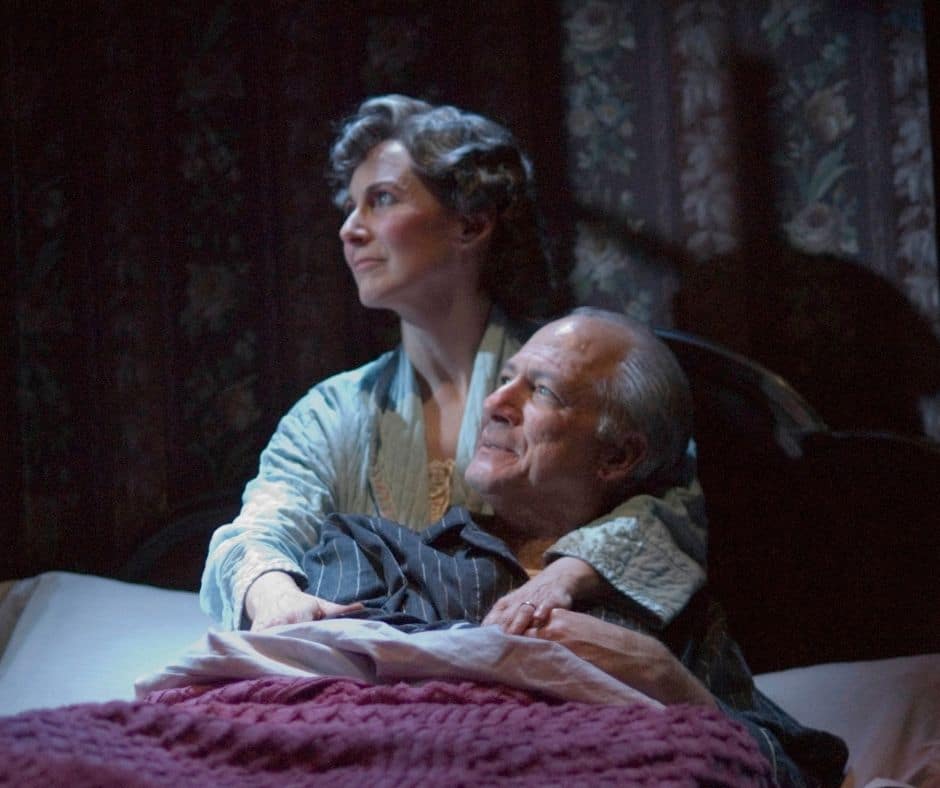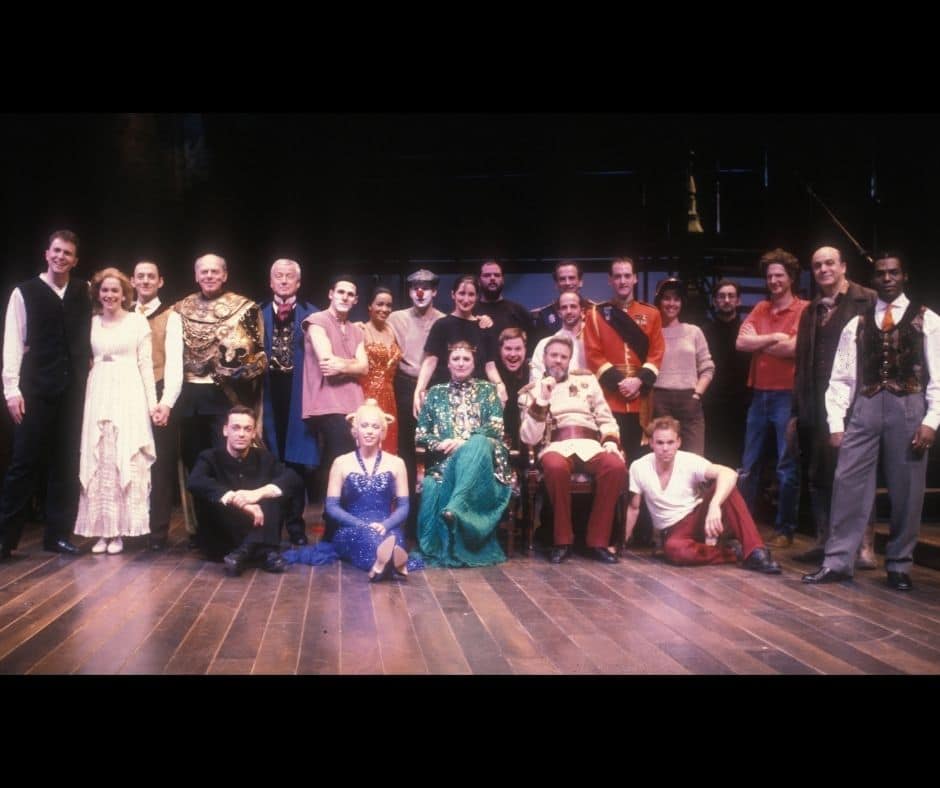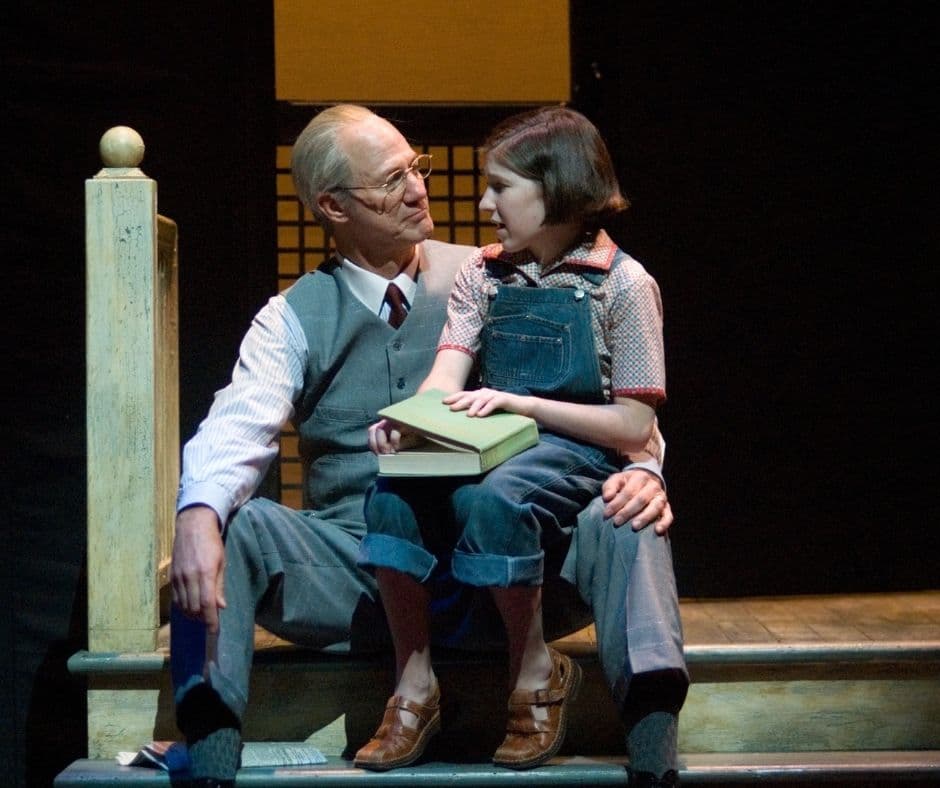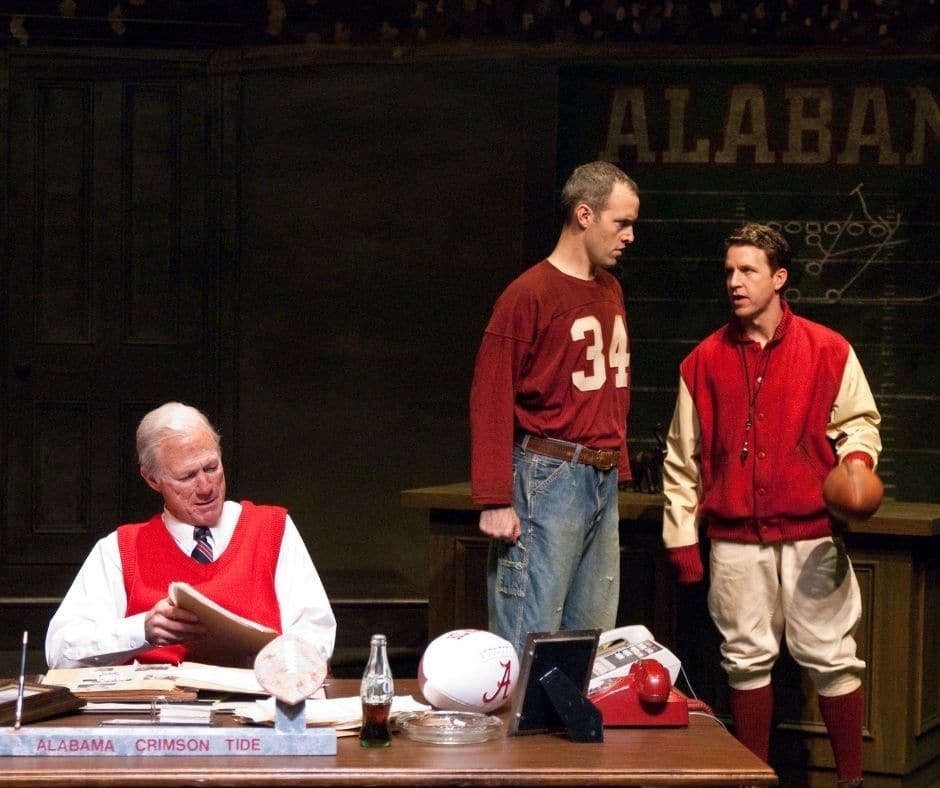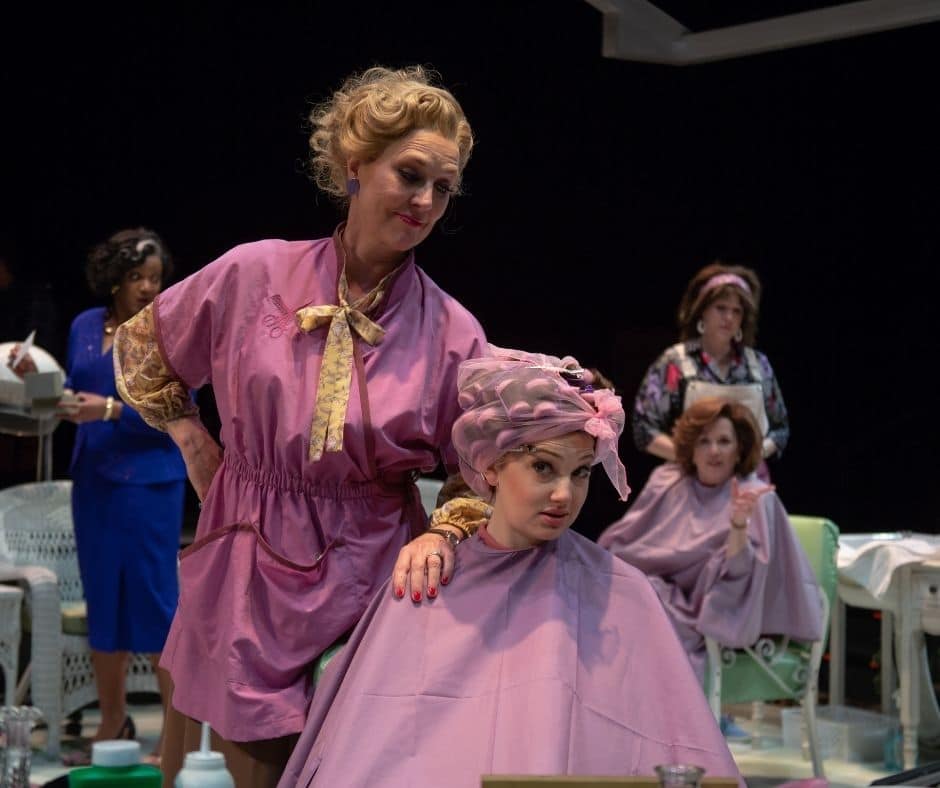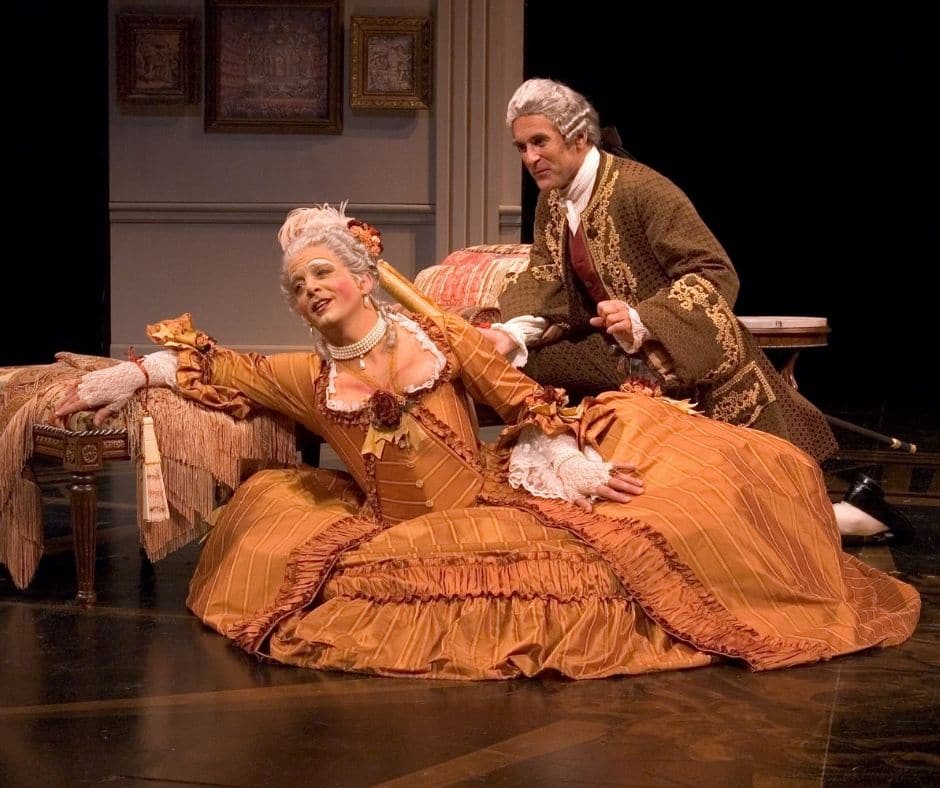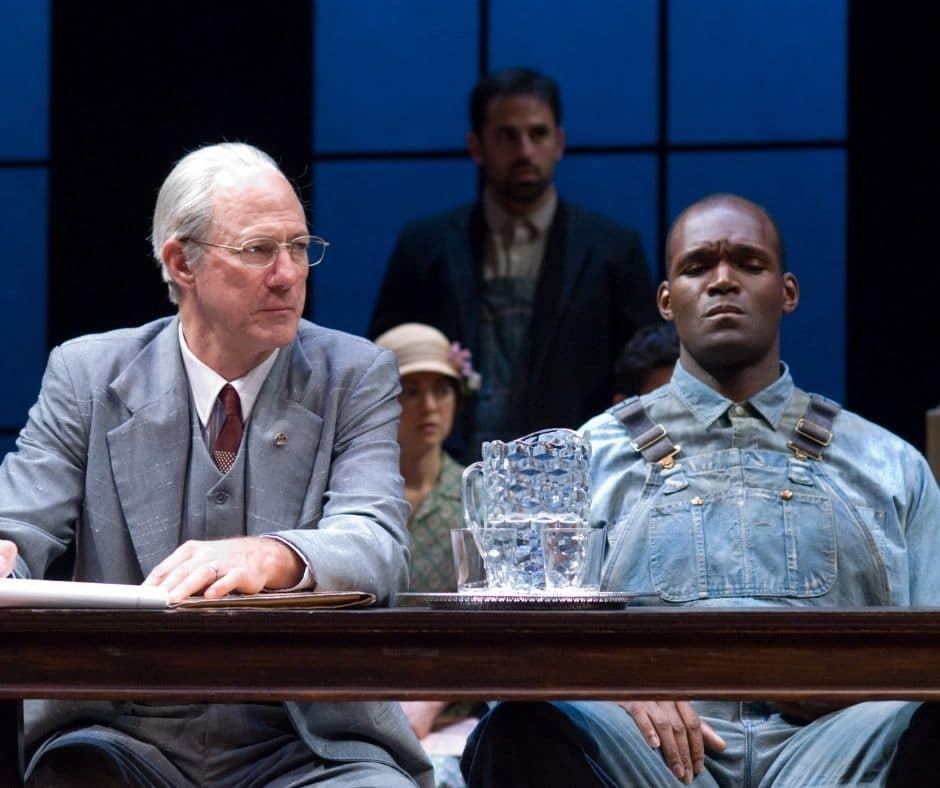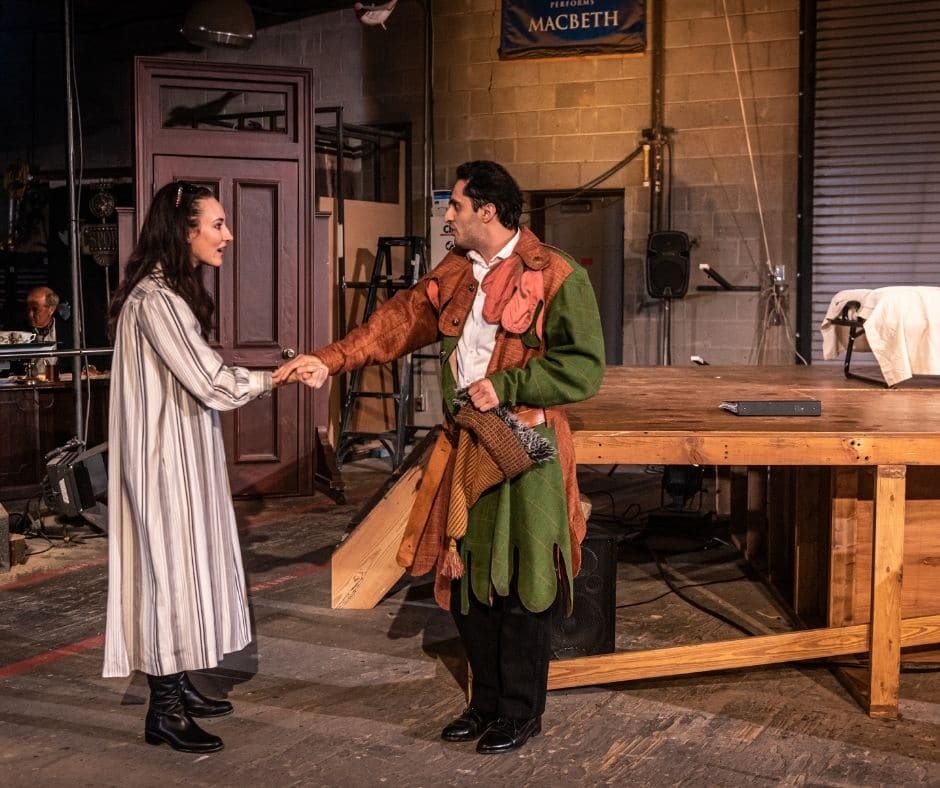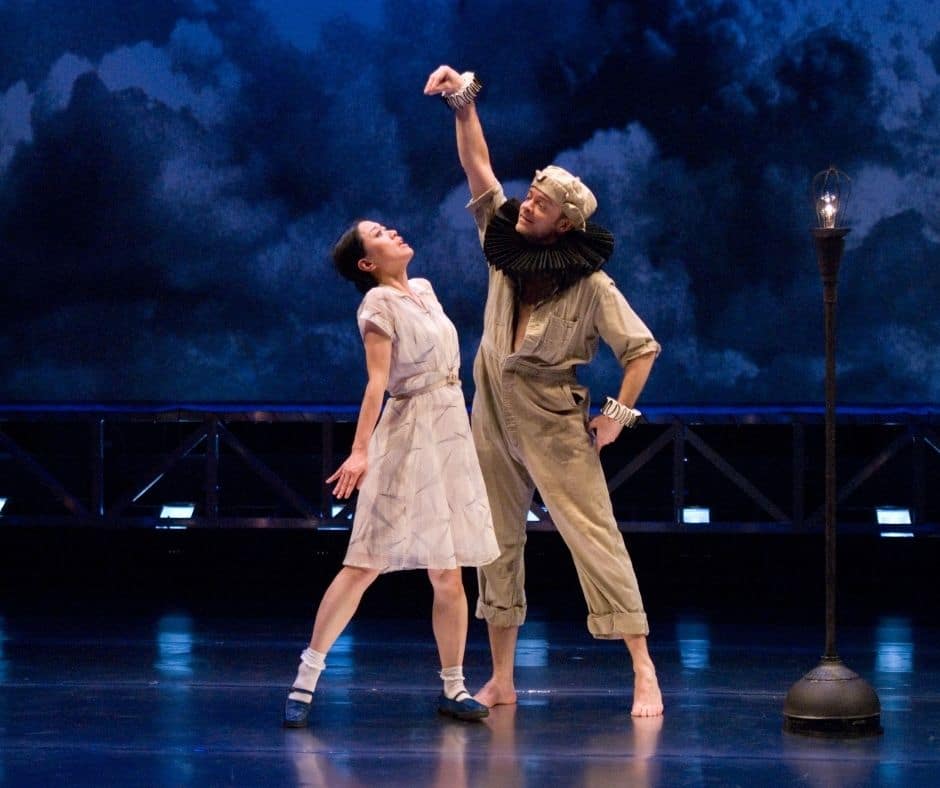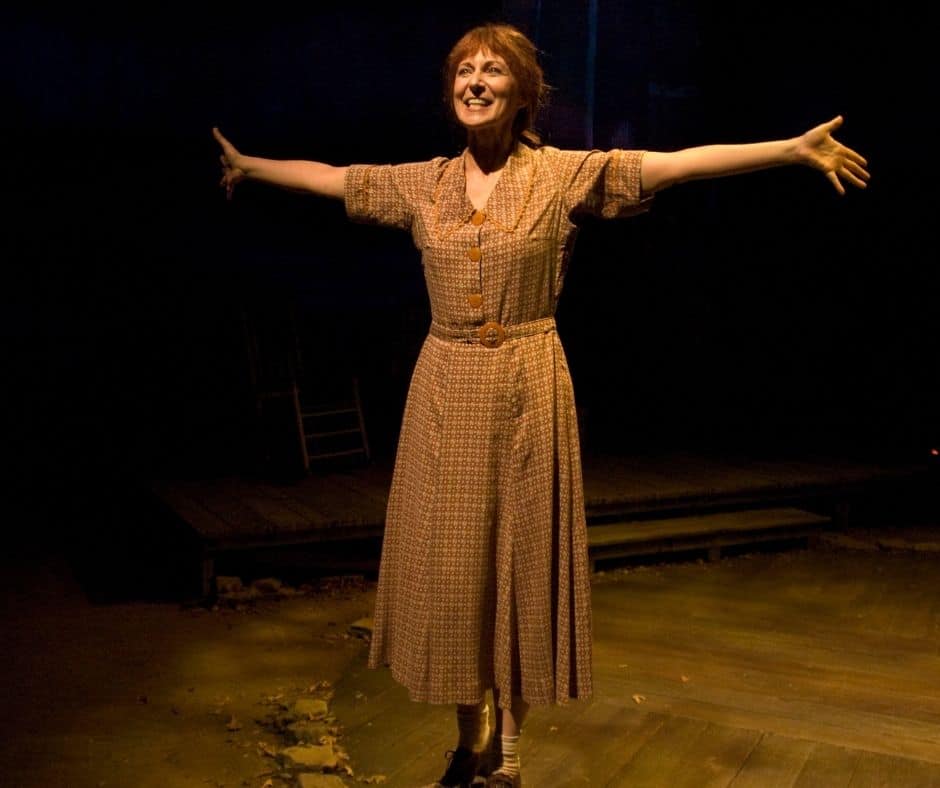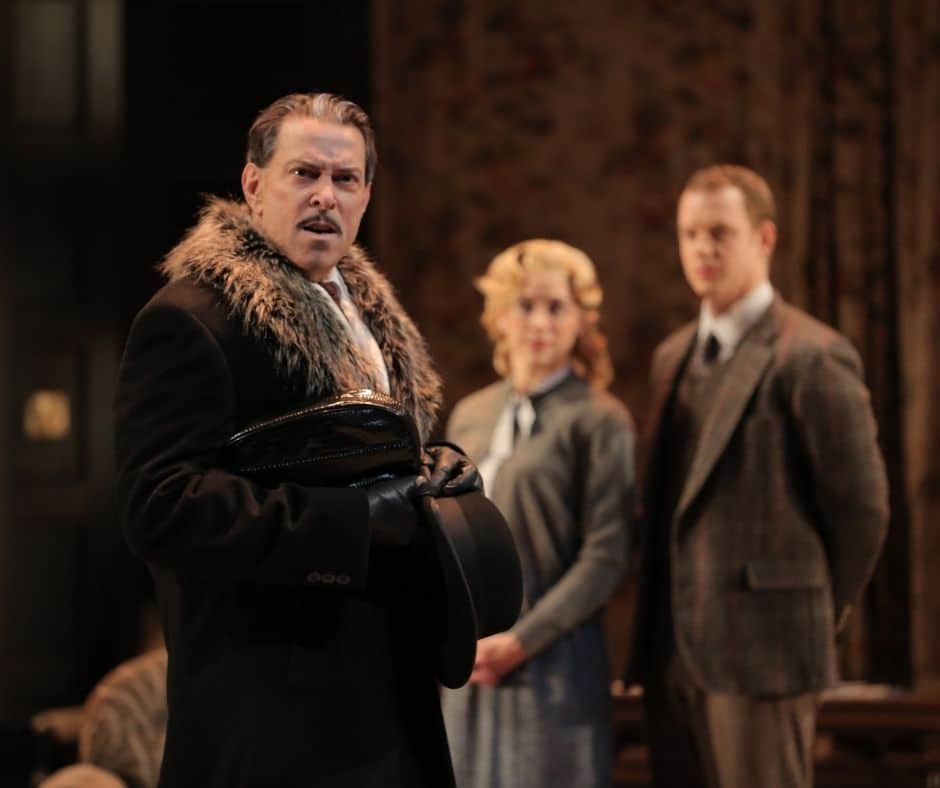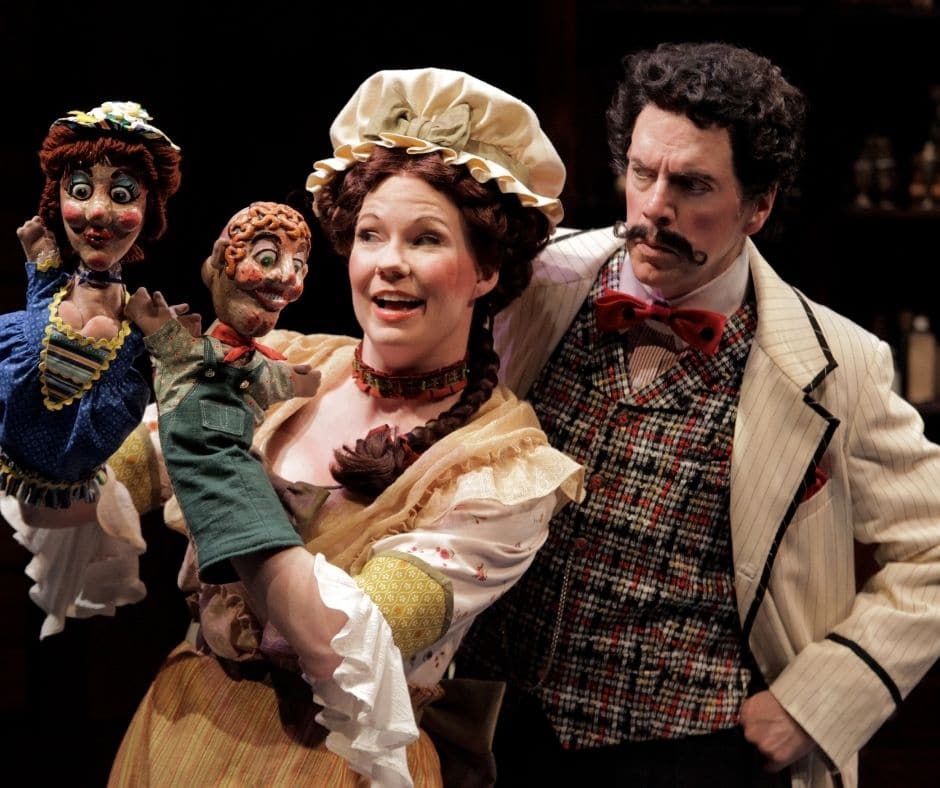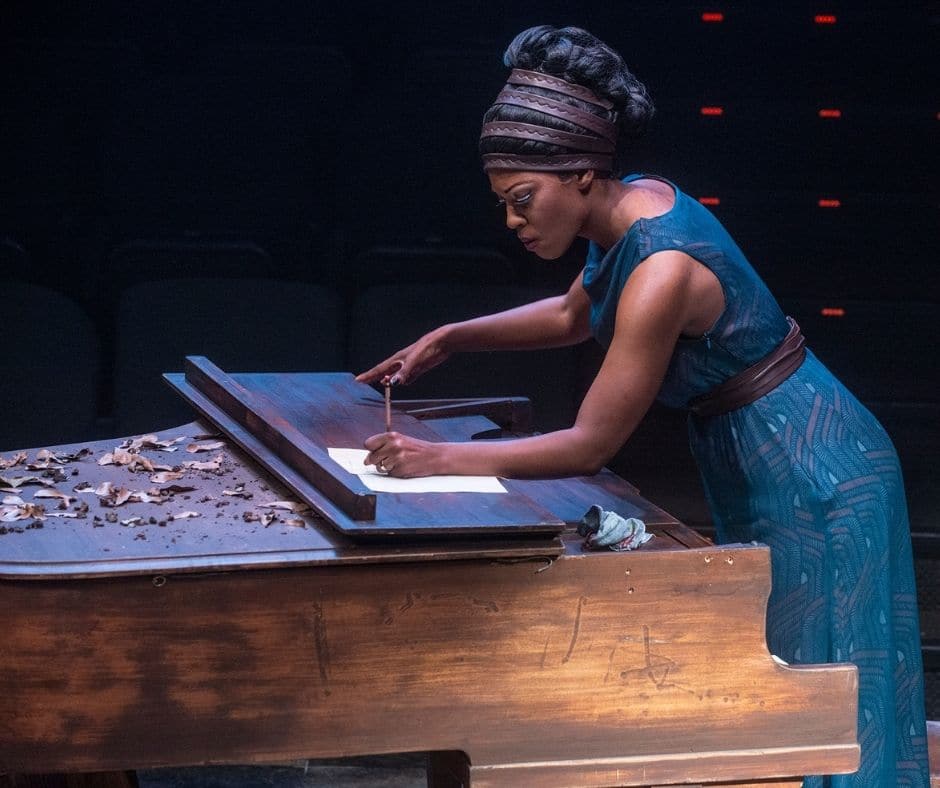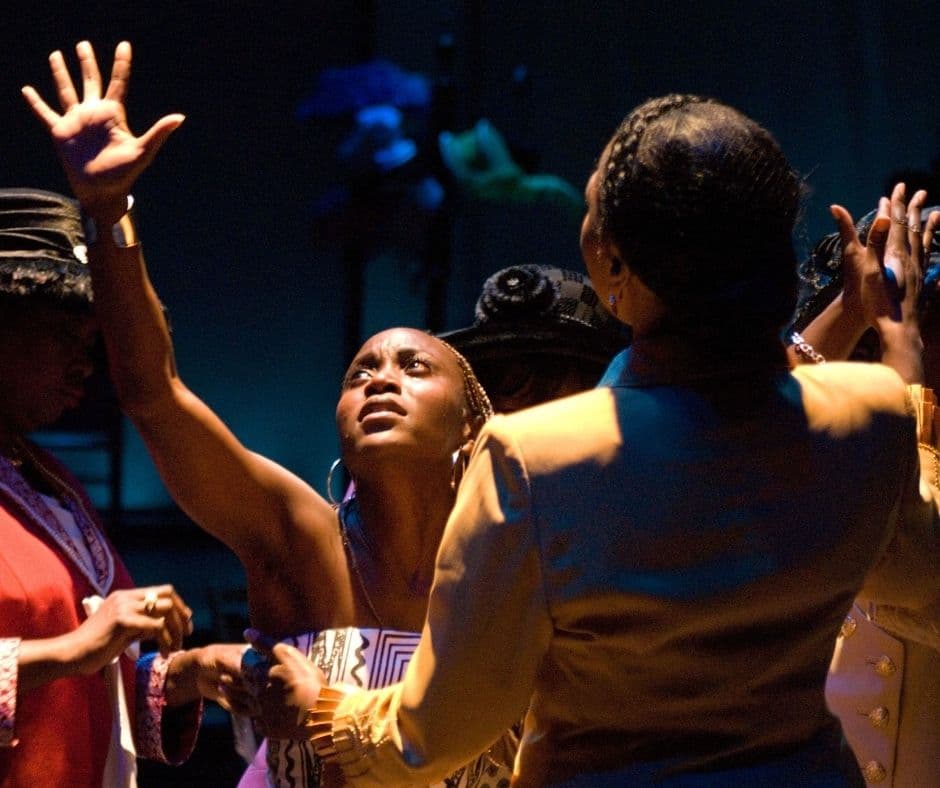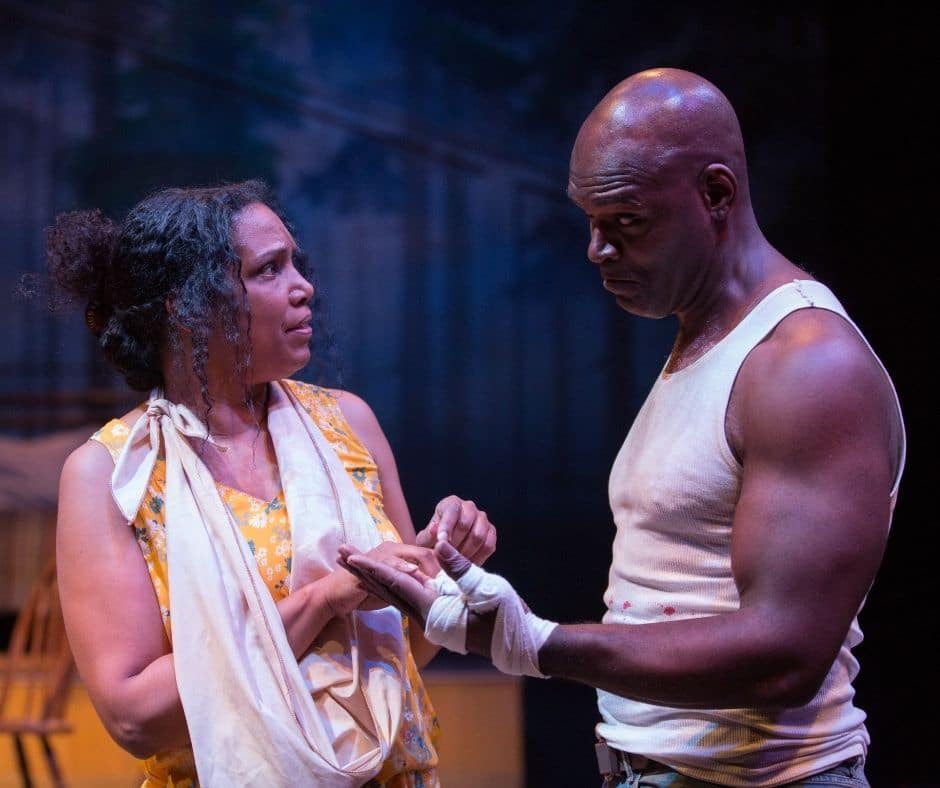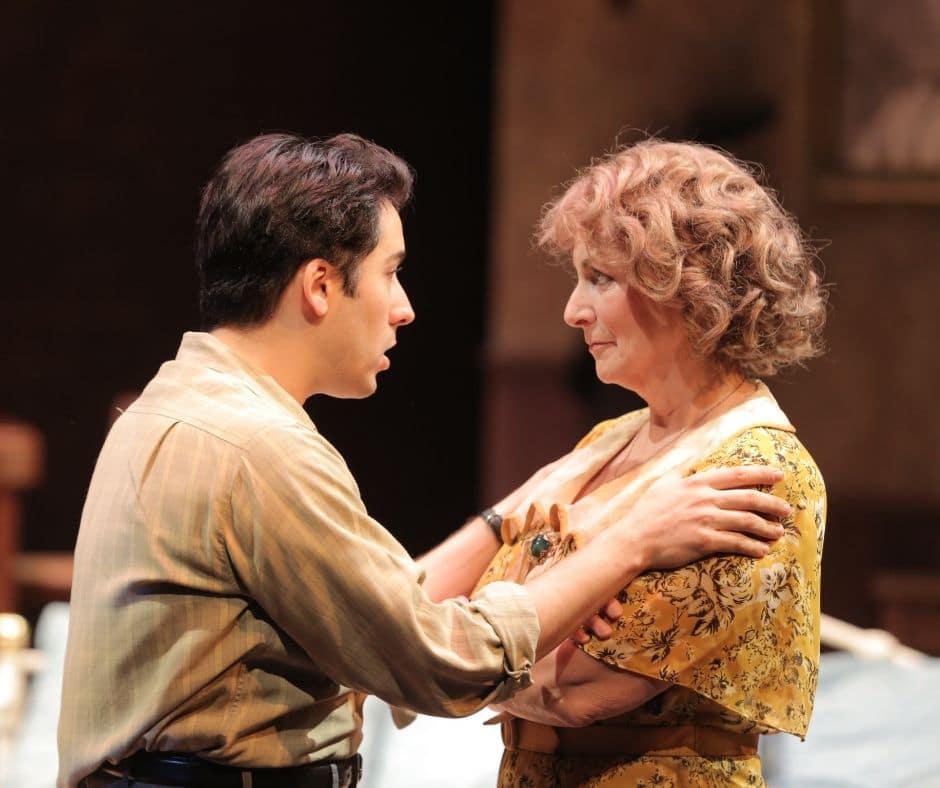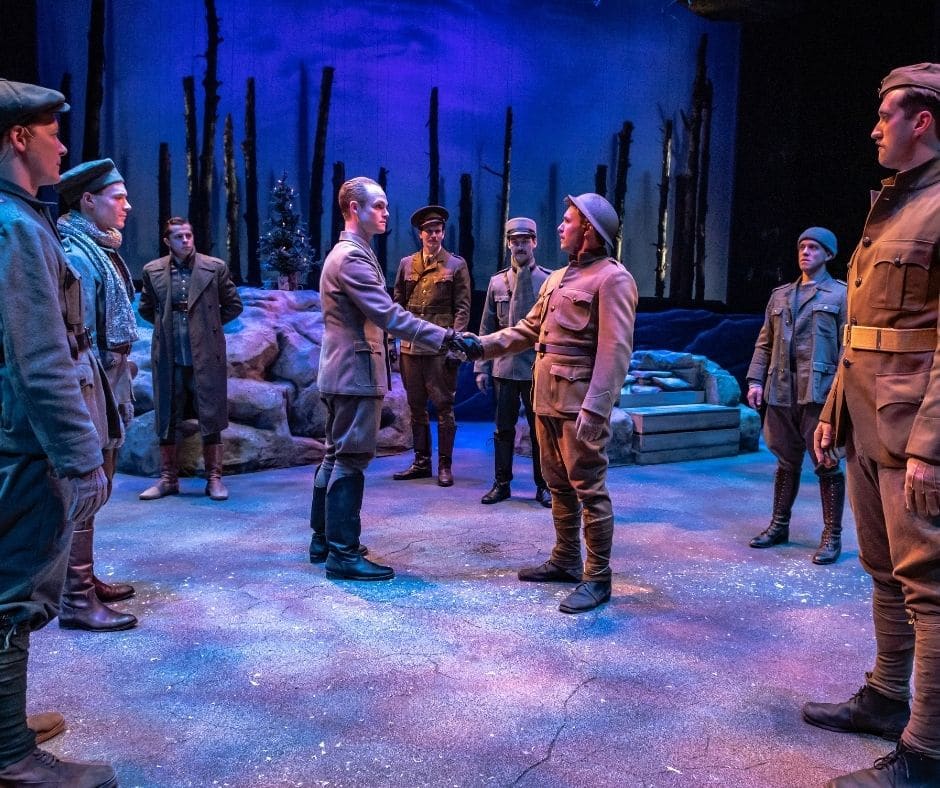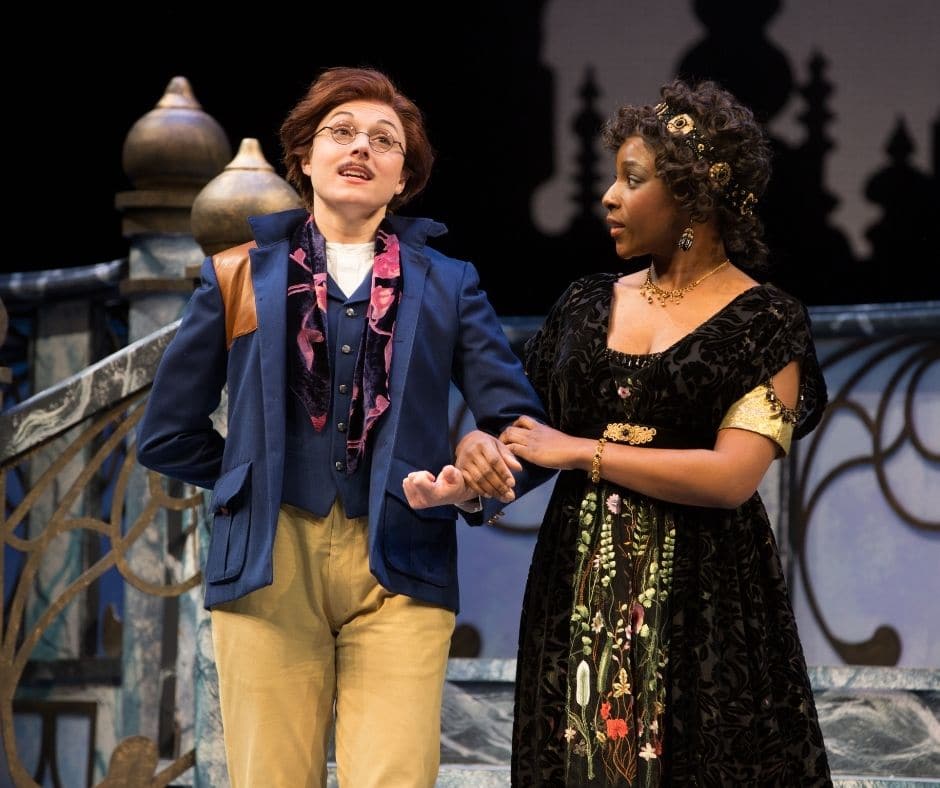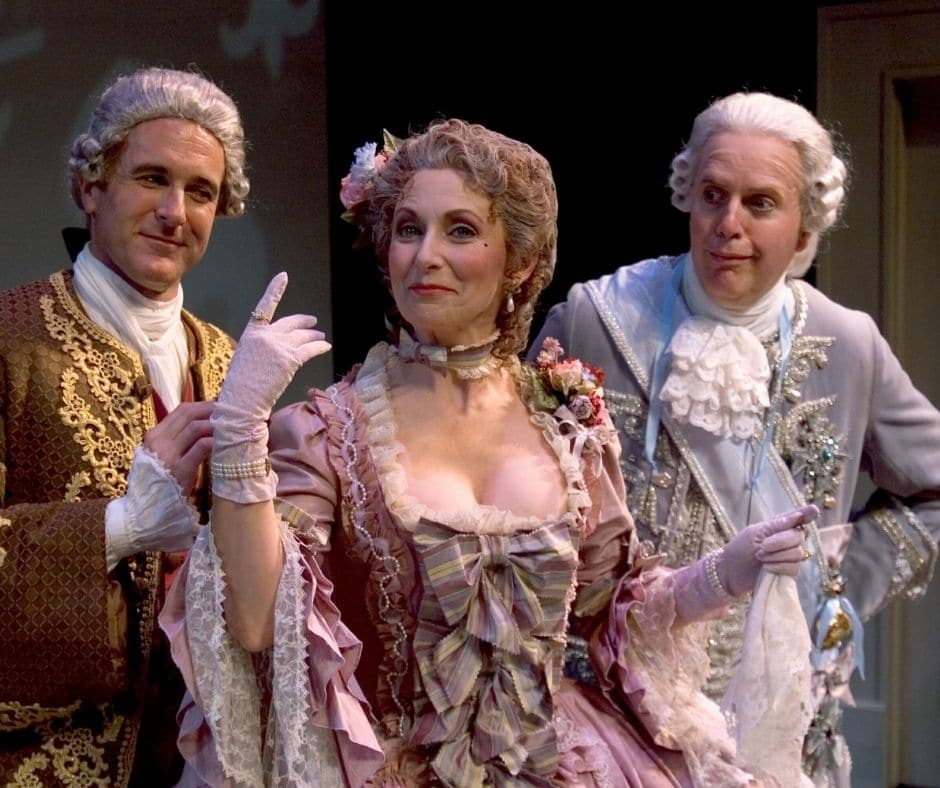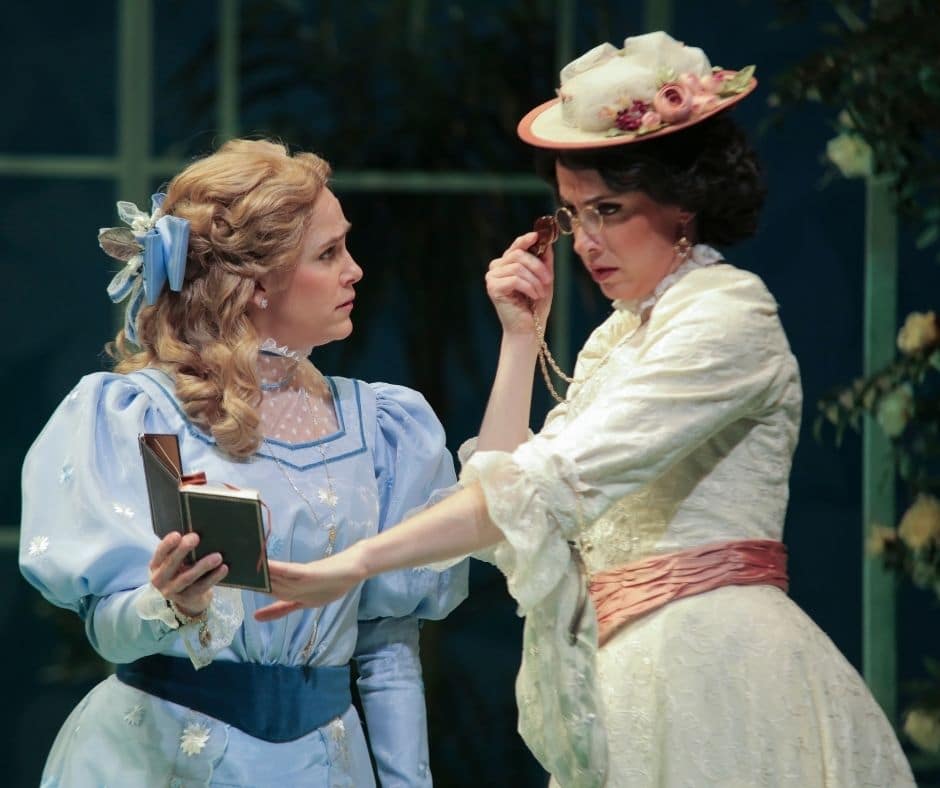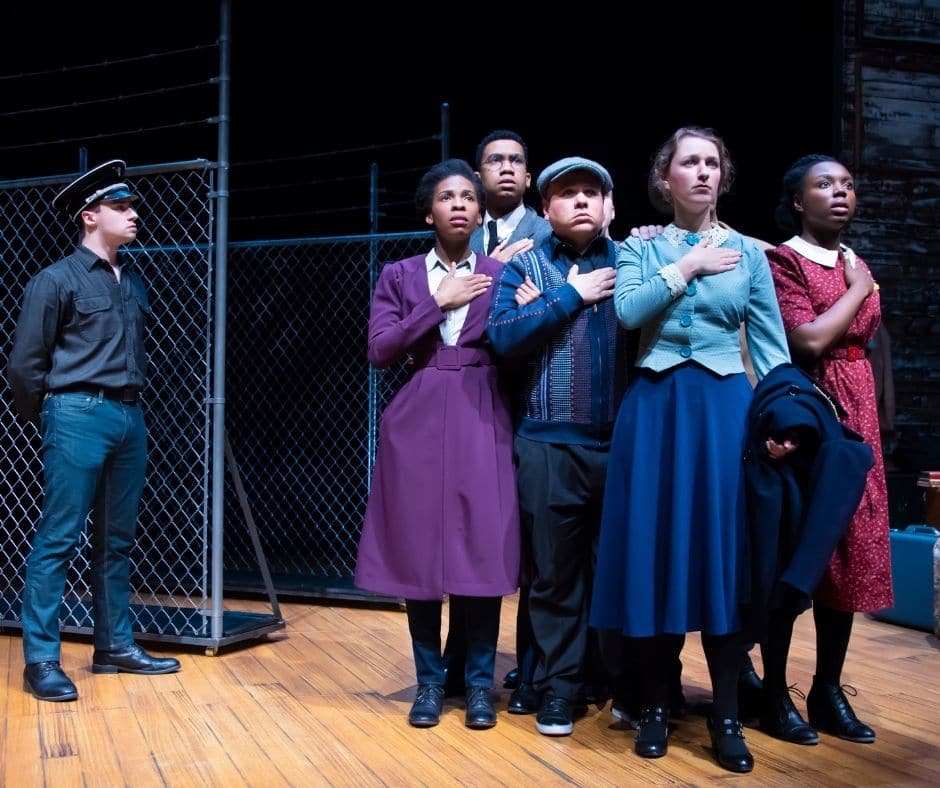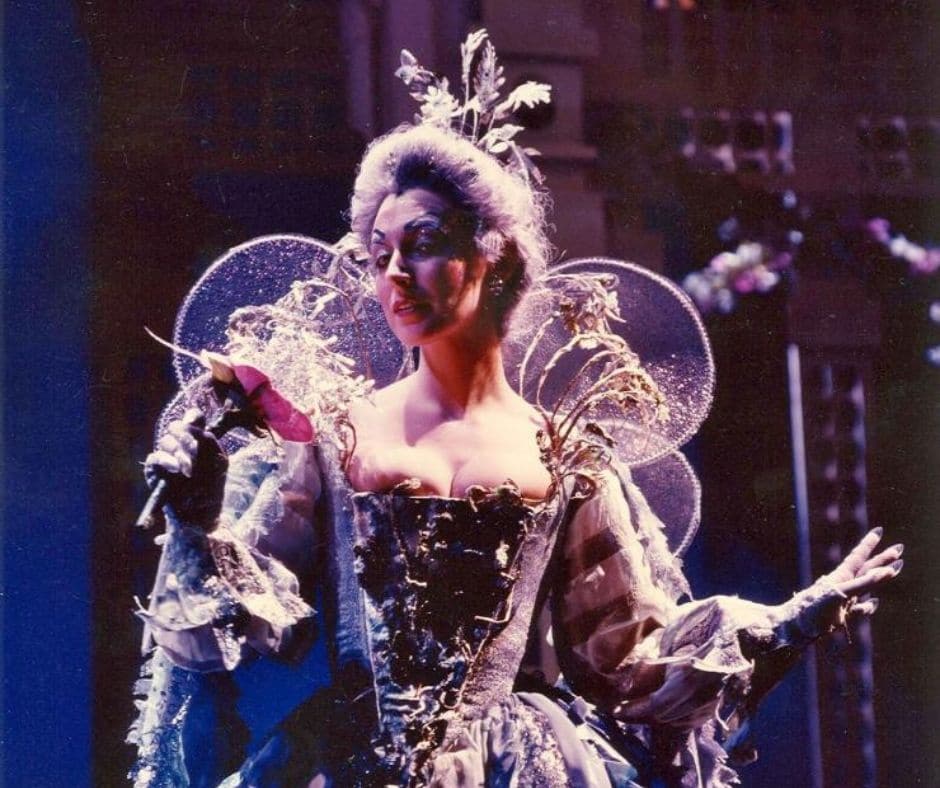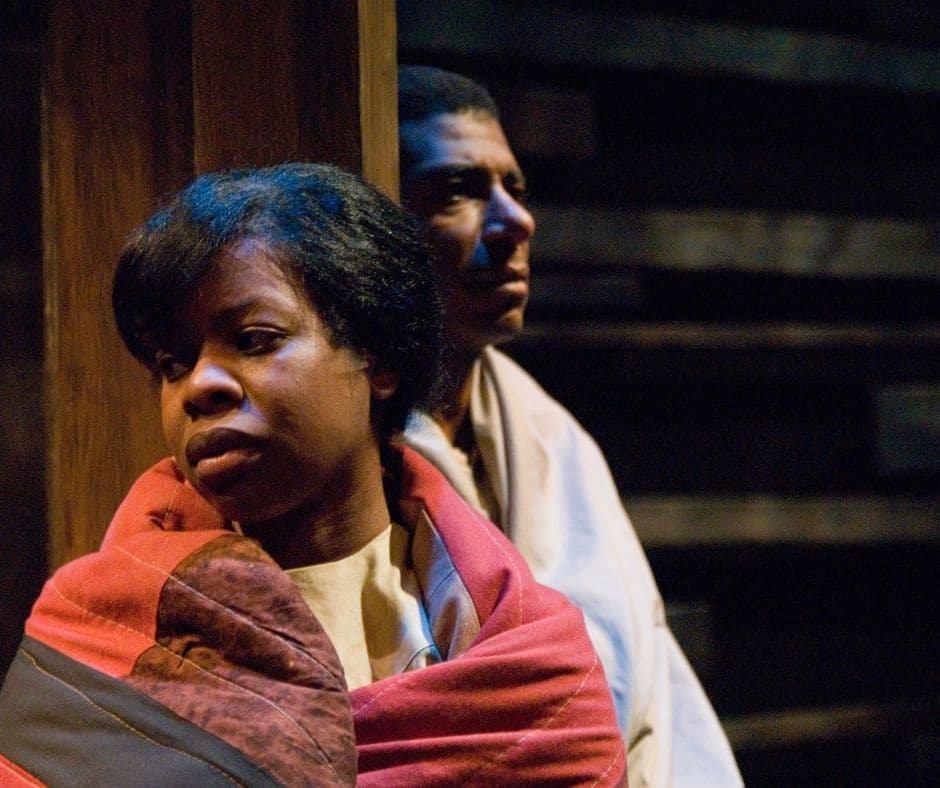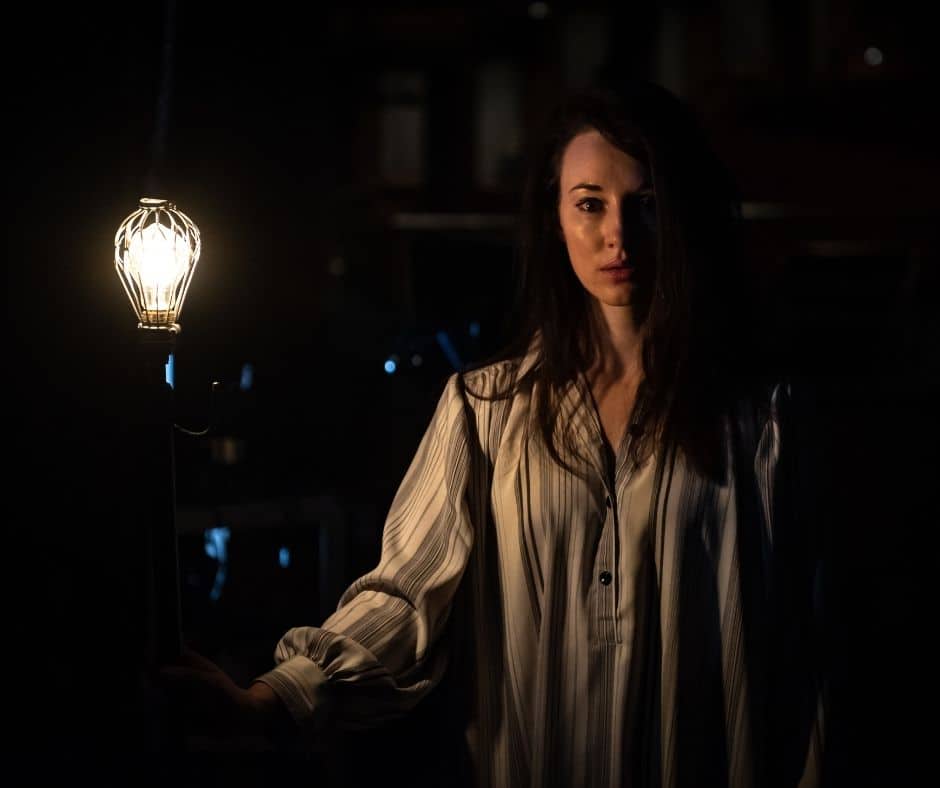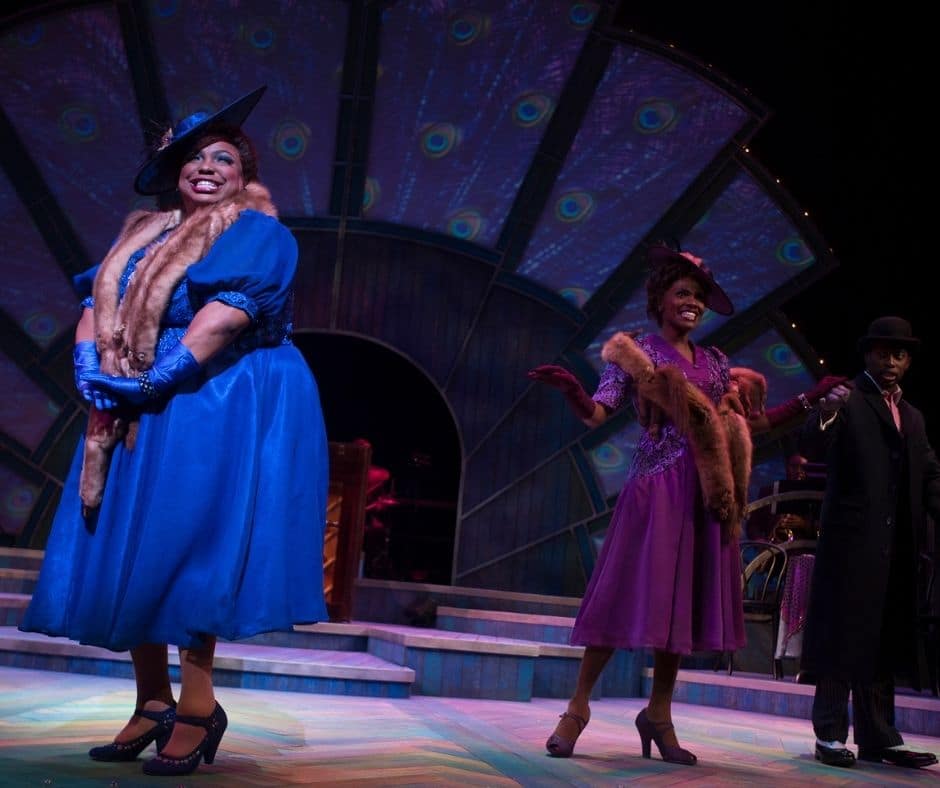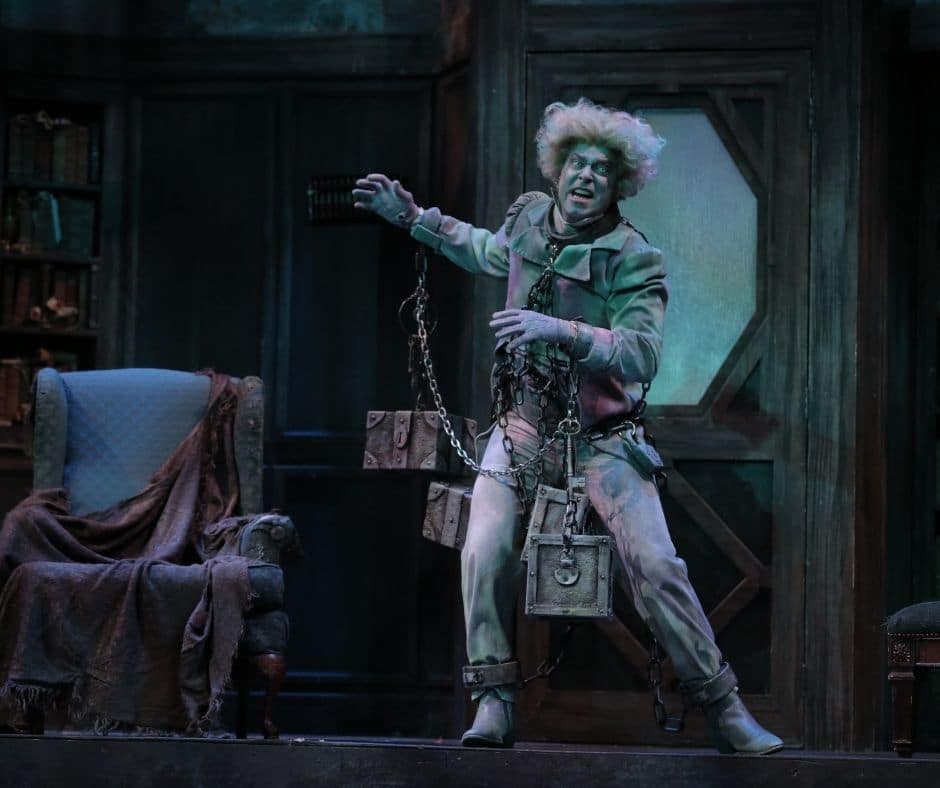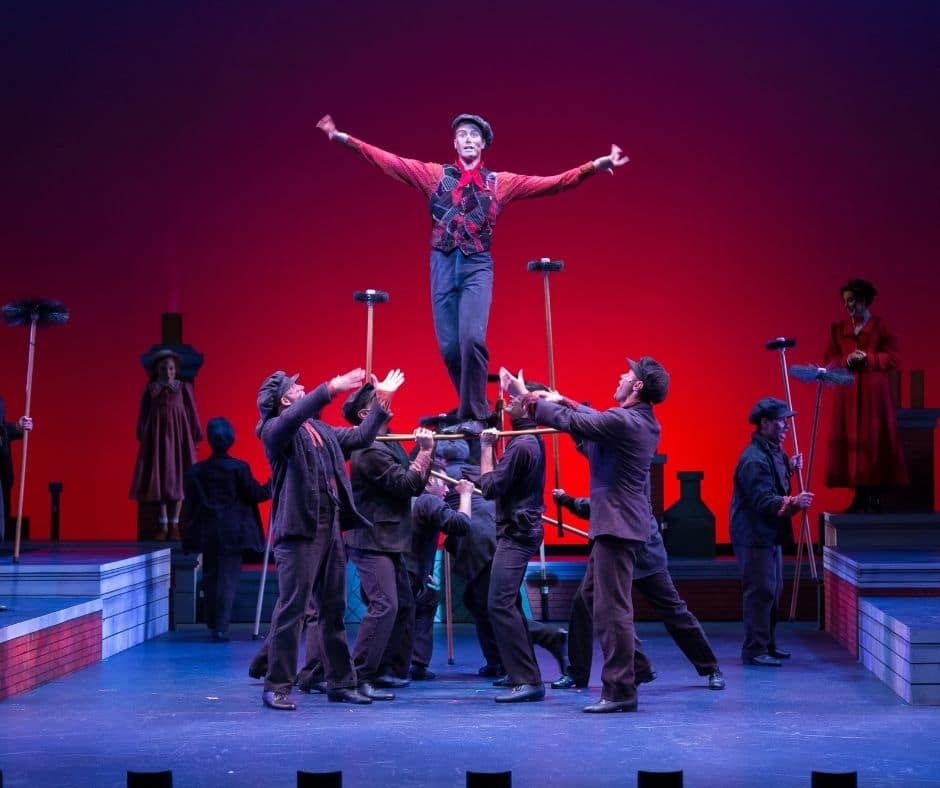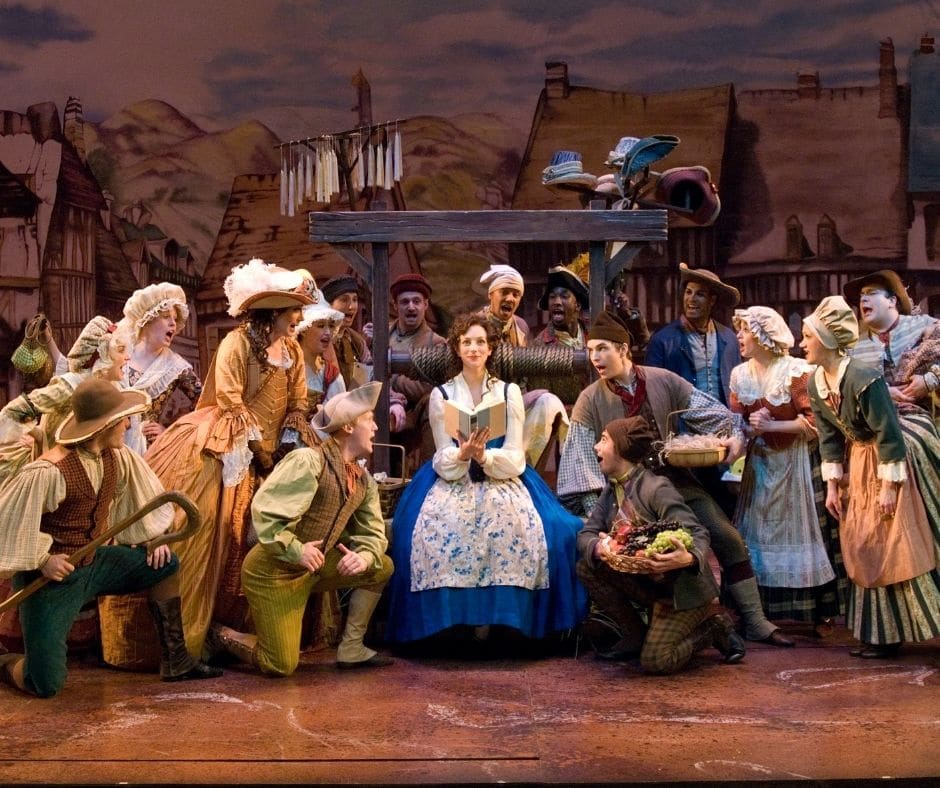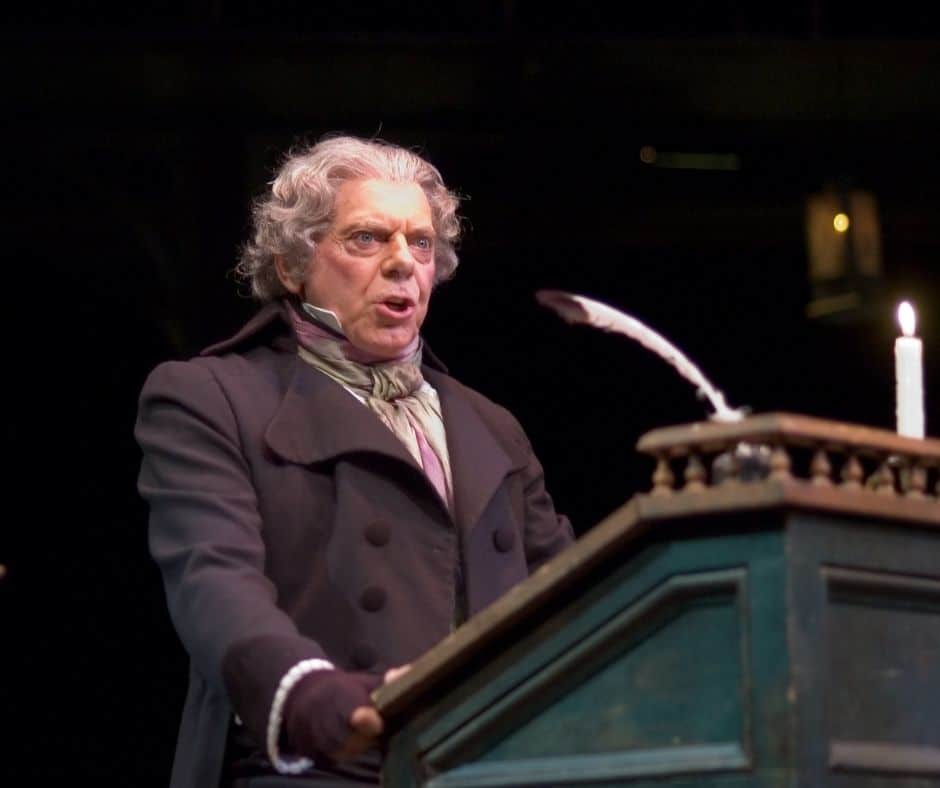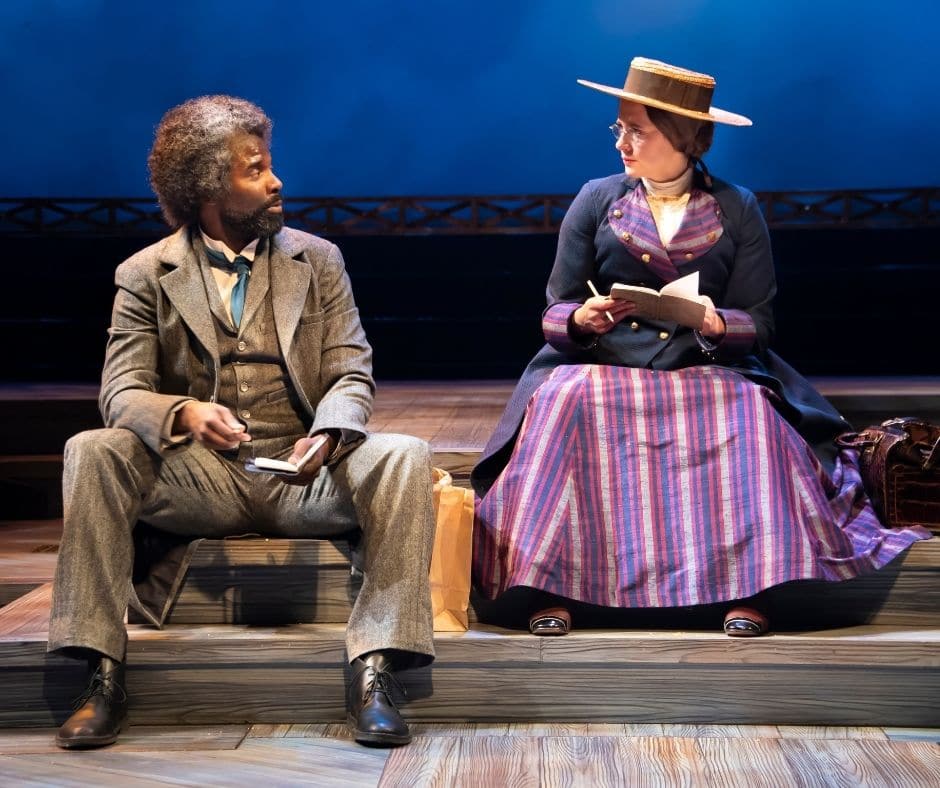Celebrating 40 years in Montgomery
Since its founding in Anniston in 1972, Alabama Shakespeare Festival has produced more than 500 plays and musicals, developed over 100 new scripts through the Southern Writers Festival, and completed the entire Shakespearean canon. The relocation to Montgomery in 1985 propelled the theater to national status and gave it the capacity to produce at a level unseen in the South.
On December 7, 1985, the Carolyn Blount Theatre opened its doors as the permanent home of Alabama Shakespeare Festival. To celebrate the occasion, here are words, stories, and memories from some of the people who’ve been an integral part of the theater’s success over the years.
Martin Platt (Artistic Director, 1972-1989)
Sometime in the early 80s, I was at Stratford-Upon-Avon, seeing a play at the Royal Shakespeare’s Swan Theatre. A young couple came up to me and said, somewhat awkwardly, “Excuse me. Are you Martin Platt?” I replied in the affirmative. They introduced themselves, and then they said, “We’re from Alabama. We used to go to the SchoolFest matinees, and later to other performances. We loved them… and we just got married — and this is where we wanted to come on our honeymoon. Thank you so much!”
That’s what ASF means to me. That’s what ASF means to Alabama.
Dr. Laurie Jean Weil (Former Board Chair)
The first play produced, William Shakespeare’s A Midsummer Night’s Dream, was a sumptuous feast of sets, costumes, actors all world-class, matching the soaring inspiration of the building. Red Blount’s gift to Alabama provides every one of us something we can be proud of, something magnificent and excellent to offer to the region and the nation.
Several years ago, the ASF Board adopted a mission statement that captured the essence of what we do at ASF: “Alabama Shakespeare Festival, the State’s theater, builds community by engaging, entertaining, and inspiring people with transformative theatrical performances and compelling educational and outreach programs.”
When we enter the Festival Stage or Octagon spaces, we sit among people we know and people who are strangers. In our own little world, each of us watches actors respond to the challenges and opportunities life offers to us. Sometimes, the characters meet their challenges; sometimes, they fail. We can identify with them. We may even learn from them, but mostly, we are touched by their vulnerability, courage, playfulness, and intensity.
Often the plays suggest what we have in common and the ways we can help one another live into our best selves. Through drama or comedy, history or fantasy, the plays prove, “All the world’s a stage,” and our awareness is broadened, our sympathies deepened as we recognize ourselves as “… all the men and women merely players,” with our entrances and our exits,” playing all the different roles of life. Sharing this experience to mutual effect connects us!
As in the past and once the pandemic is subdued, Alabama Shakespeare Festival will continue to be an economic engine for the River Region and the state; it will continue to be an irreplaceable investment in the education of our school students; it will continue to be an unparalleled enhancer of quality of life.
Some twenty years ago, the Alabama Shakespeare Festival established the Southern Writers’ Project (SWP) to commission playwrights to create new plays about Southern history, cultures, people. More than any other region of the country, the South is thick and sticky with stories.
Our history is complex, both tragic and redemptive. Our cultures complex and direct. Our characters larger than life and memorable.
The newly-minted plays developed through SWP help to grow the nation’s canon of plays, and in time, will be the most enduring contribution of ASF to the nation as our plays go out to the nation and transform lives through the connections they make to our minds and hearts which bring us closer together, in community.
Greta Lambert (Former Associate Artistic Director & Acting Company Member)
I remember, during the first preview of Hedda Gabler, I put Eilert Lovborg’s manuscript in the stove in a jealous rage, missed the pan of water, and smoke came pouring out of the furnace. The auditorium was cleared for about 20 minutes while the smoke disappeared. I was mortified.
I will never forget the few moments before the curtain rose on that first A Midsummer Night’s Dream, in 1985. I stood in the wings breathing in the palpable excitement in the air. This Alabama girl was opening a new, magnificent theatre in Montgomery. I was overcome with pride, joy, amazement, and tears. I felt I was home. Not just in Alabama, but in my heart as an actor. My life in the theatre made sense.
ASF gave me a road map and I journeyed down paths I never dreamed I would travel. I met my husband, found a home, all because of my odyssey. My work is my life-long project, ever-changing, and in need of improvement and upgrades. ASF gave me a haven to work on my long-term assignment and the opportunity to play great roles. Women who taught me strength, passion, tactics, madness, humor, darkness, hope, and love.
ASF has given Montgomery and the River Region a place to see world-class theatre produced by theatre professionals and has made a tremendous contribution to education. Imagine that student in one of the SchoolFest student-matinee performances seeing live theatre for the first time. Does he/she/they see themselves in the actors, the stage crew, the designers? How many times have students seen the classics come to life onstage?
Through theatre and the arts, students learn empathy, vocabulary, values, imagination, and the art of storytelling. As a teaching artist, I have learned the joy of watching students find their special light. The interns and fellows taught me what is possible in the theatre of the future. I am grateful and brimming.
Father Manuel Williams, C.R. (Board Member)
Miss Helen Hoyt, formerly Sister Rose Marie of the Vincentian Sisters of Charity at St. Jude High School, inspired hundreds of her students, primarily African American young people, to love the works of the Bard and other great literature. We memorized several of Shakespeare’s sonnets and scenes from the plays in addition to the works of Paul Laurence Dunbar and Gwendolyn Brooks and Emily Dickinson; it was truly a catholic exposure to the world of letters.
Twenty years ago, I took Miss Hoyt to see the production of A Lesson Before Dying at ASF. I remember as we entered the Octagon, the attendants offered patrons Kleenex tissues. I thought at that moment that might be a tad presumptive. Of course, by the time we were well into the second act, I was grateful for those tissues. The entire cast was outstanding, and Isiah Whitlock, Jr., who played the condemned man, Wiggins, was heartbreaking. He has gone on to have a very distinguished career in television and film. I am not moved to public tears too often, but the poignancy of that story and ASF’s superb presentation was an incredibly moving experience.
In these 35 years, what ASF has done for me and thousands of others is make us think, delight us with pageantry and humor, anger us as some of the realities of our world portrayed some brilliantly on our stages, make us bellow with laughter, and reach for our Kleenex and hankies.
Michael Emerson (Emmy-Award Winning Actor & ASF MFA Graduate)
Kent Thompson (Artistic Director, 1989-2005)
ASF made significant contributions to American theatre with the many world premiere plays created by the Southern Writers’ Project. Many of these scripts have gone on to follow-on professional productions across the United States, taking the name of ASF, Alabama, and Montgomery with them.
My favorite memories surround directing the ASF and then the follow-on Signature Theatre productions of A Lesson Before Dying adapted by Romulus Linney from the novel by Ernest Gaines. This was a high mark for the Southern Writers’ Project and a powerful and moving tragedy—I remember audiences being silent at the play’s end in both Montgomery and New York City—they were so moved and devastated you could hear a pin drop—which was broken by thunderous applause.
ASF is a gem of the state of Alabama—a leading cultural institution that brings acclaim, attention, and audiences from across the nation and the world. With its magnificent settings, combined programming of Shakespeare and the classics, new Black and Southern plays, and family fare, ASF has burnished the reputation of Alabama and Montgomery. It has brought hundreds of thousands of people to Montgomery to enjoy staged productions.
Greg Thornton (Former Acting Company Member)
I was cast in New York by Martin Platt, the founding artistic director of ASF, to play Amundsen in Terra Nova. For me, it was new land. Not ever having traveled below the Mason-Dixon line, I left the New York area and drove south, motored through a Tennessee snowstorm, rounded the “jaw drop” curve, and found myself on the grounds of ASF. Taking in the view of that magnificent theater across the lake, little did I realize this place built by Mr. Red Blount would be my home for the next twenty years.
ASF enabled our family to have a place to live, to watch our children grow up, to be among a huge-hearted community onstage and off, to have a home. When I look back on this, Shakespeare, as is his wont, whispers to me: “And his great love, sharp as his spur, hath holp him to his home.”
For its outstanding artistic accomplishments, its significant educational contributions, and its important economic impact on the city, the state, and the country, stand up and raise a glass to ASF on its 35th birthday in Montgomery!
Carrie Preston (Emmy-Award Winning Actor & ASF Alum)
Rick Dildine (Artistic Director, 2017-present)
Today the company is recognized as one of the jewels in American theatre. Our vision continues to be ambitious as we seek to build community with transformative theatrical performances and capture the human experience of Alabama, the South, and the nation. I came here in 2017 because I believed deeply that the theater can be the community’s center and that storytelling is our best way to bridge divides. Over thousands of years, stories have been used to dehumanize, destroy, and humiliate; stories have also been used to empower, empathize, and embolden communities. With a grand plan to commission a new Southern canon, ASF will play a significant role in the future of American storytelling for decades to come.
Todd Schmidt (Executive Director, 2018-present)
The magnificence of the acting, the beautiful use of language, the regal costumes – all combined to spark a fire in me that ignited into a long and fruitful career. I am eternally grateful to ASF for exposing this young Alabama boy to the power of a great story told by a skilled group of professionals.
Dr. Susan Willis (Dramaturg and Shakespeare Scholar)
- The Anniston core acting company and staff that brought ASF’s spunk and savvy to Montgomery: Betty Leighton, Philip Pleasants, Robert Browning, Jim Donadio, plus Charles Killian and Carol Ogus and more to be joined by “newcomers” we kept for years: Greta Lambert, Greg Thornton, Ray Chambers, Steven David Martin, Barry Boys, Paul Hebron, Sonja Lanzener, Rodney Clark, plus Alice Ortega, Le Hook, Terry Cermak, and so many more.
- Seeing Red and Carolyn Blount standing quietly in the Grand Lobby watching busloads of school children fill the theatre for a SchoolFest student-matinee performance.
- The screams and laughter at the actors’ backstage, repertory-end, show-and-tell “Velveeta” awards for cheesy acting, hosted by Steven David Martin.
- The talent and growth and dedication of every MFA class from 1985 to 2009, their in-house projects and understudy runs (and rushing to the theater if an MFA went on), and every Saturday morning’s fierce discussions in Theatre History class.
- The passionate curiosity of BardTalk attendees in the Octagon lobby and of Theatre in the Mind audiences.
- ASF and Kent Thompson starting the Southern Writers’ Project and the diversity of new work it has developed, from the initial children’s show commissions (never staged) to Fair and Tender Ladies, A Lesson Before Dying, Gee’s Bend, Bear, and so many more.
- Greta Lambert’s wizened Ivy Rowe shuffling to the edge of the platform and with a step down becoming vibrant 12-year-old Ivy, ready for life and love amid that expressive music (and so much more from that show which is “a little chunk of my heart”) … amid so many memories of her ASF performances, Titania (her first ASF role), Rosalind, Beatrice, Lady Macbeth, Cleopatra, Eliza Doolittle, Sarah Bernhardt, Eliza Doolittle, and in Kent Thompson’s first ASF production, On the Verge.
- Philip Pleasants as Oberon, Lear, Dogberry, Richard III, Scrooge, a butler, everything… Ray Chambers’ Brick with crutch and bottle in Cat on a Hot Tin Roof (his first ASF role), to his Count of Monte Cristo in a white tuxedo, to his Prince Hal and Henry V and both his Richard IIIs… Greg Thornton’s first role as Amundsen in that huge bear coat, his Atticus Finch, Platonov, and his performance in the first Noises Off…
Mayor Steven L. Reed (Mayor of Montgomery, AL)
Diana Van Fossen, on behalf of the late Geoffrey Sherman (Producing Artistic Director, 2005-2017)
Geoffrey’s time at ASF was a Camelot time in his career. So many strands of his life’s work came together. His lifelong support of developing playwrights and BIPOC artists, addressing issues of social justice starting in his Off-Broadway days; his love of high comedy and the classics American and British; his native affinity for the drama of Shakespeare; and his born-in-a-trunk musicality and skill with musicals — all came together at ASF.
In addition to being Geoffrey’s wife and hosting incoming casts for great welcome parties at our home, I was also an ASF artist for 12 years, both as a director and as an actress. From my dance movement-based Trojan Women through Shakespeare plays I had the privilege of directing, I also realized joys and triumphs. As an actress, I had the thrill of playing Lettice Duffet and Lady Bracknell as well many times rendering the goofy Mrs. Dilber in A Christmas Carol. Both Geoffrey and I took pride in the company cabaret nights, which we hoped gave cohesion to staff, performers, and the community.
So, “… at this festive time of year, it is pleasant to reflect…” on the many joys of our years in Montgomery!
Gordon G. Martin (Board Chair)
Three-and-a-half decades later, millions of students and patrons have been enlightened, entertained, and enthralled by the hundreds of hand-crafted performances produced by the artisans at ASF. ASF is Alabama’s only fully professional, producing regional theatre. It has a significant economic impact in Montgomery and has played a critical role in recruiting major corporations to the state.
ASF has enriched my life and the life of my family in myriad ways: engaging us, challenging us, enlightening us, and entertaining us. My favorite memories of ASF usually involve Greta Lambert, as well as any time one of my kids says, “Hey, remember when you took us to ASF and….”
Hand-crafted theatre is expensive to produce – but vital to our community. It is up to all of us to ensure that ASF continues to make memories for another 35 years – and beyond!




